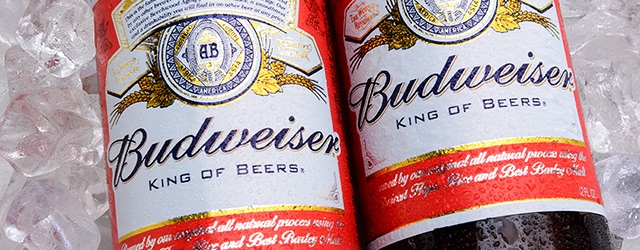Hong Kong protests are taking a toll on the IPO market.

Budweiser Brewing Company APAC’s initial public offering (IPO)—which would have beenthe world’s biggest IPO in 2019—has been cancelled, with the proposed high valuation as well as an inauspicious local market backdrop blamed for the deal’s withdrawal.
The cancellation comes at a fraught time for Hong Kong.Ongoing street protests against a proposed law that would allowextradition from Hong Kong to mainland Chinahave raised the specter of military intervention by the mainland and shaken business confidence in the former British colony as a safe, stable place to do business.
Parent company Anheuser Busch InBev called off the listing of its Asian unit over the weekend, citing “several factors including the prevailing market conditions,” with the 1.5% decline of Hong Kong’s benchmark Hang Seng index during the July 1-11bookbuilding process.
But individuals close to the IPO cited its valuation as being central to the sluggish demand it generated, with investors seeing little potentialupside in the days and weeks following the stock’s debut.
The deal’s aim was to raise between $8.3 billion and $9.8 billion with the enterprise valued at somewhere between $54.3 billion and $63.7 billion prior to a green-shoe option. Given the company’s ownership of premium brands such as Foster’s and Stella Artois and its strong product penetration across a range of markets in Asia, from Australia and China to India and Vietnam, the hope was that the deal would flyboth with institutional and retail investors.
But the deal—at an implied 28.5-33.5 times price earnings ratio (PE) for 2020—looked far from tempting in relation to regional peers China Resources Beer and Tsingtao Brewery, which were trading at PEs of 35 and 34, respectively, just prior to cancellation.
Ironically, the brand’s strength may have worked againstthe IPO. Anheuser Busch’s stock is up almost 35% this year, causing potential investors to surmise that that they might bebuying at the top of a sustained rally at the parent levelwith high risk of a price slump in secondary trading.
Apparently, there had been decent demand from sovereign wealth funds and American pension funds, but somewhat surprisingly, the company had not lined up cornerstone investors in advance—those who pay for stock prior to the IPO book build and must remain locked in to the position for at least six months.
The move is a blow to the Hong Kong stock exchange’s ambitions to become the go-to hub for Asian equity listings and calls into question the depth of liquidity it can offer to support such mammoth-sized IPOs.
At the same time,ongoing turmoil in Hong Kong driven by street protests have begun to throw the “one country two systems” arrangement with China guaranteeing citizens’ political rights enjoyed during British rule and semi-autonomyuntil 2047.Protesters stormed and vandalised Hong Kong’s legislative building on July 1, the anniversary of the former colony’s handover to China, and in recent years the Chinese Communist Party removed six politicians elected to the Hong Kong legislature.
The prospect of direct intervention by the mainland via the military or security services and thefragility of the “one country, two systems” model has prompted many analysts to question long-term viability of Hong Kong as an investment destination.Anecdotal evidence of numerous Hong Kong tycoons transferring the bulk of their liquid assets abroad as the protests boiled over has reinforced this line ofthinking.



